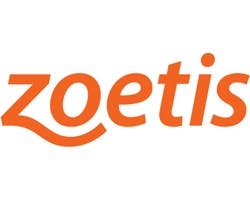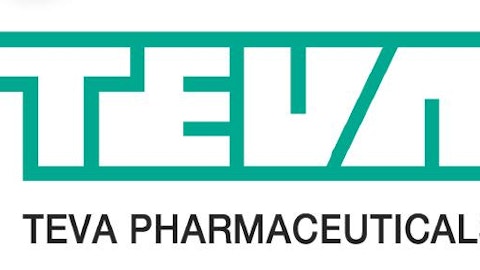Pfizer Inc. (NYSE:PFE) recently spun off animal health firm Zoetis Inc (NYSE:ZTS) in the form of an IPO. Should you take a spin in the animal kingdom or stick with treating humans? Let’s take a look a closer look at their business models.
Research & development
Zoetis’ model relies on leveraging existing animal health products by adding new species or claims to existing drugs. It’s also focused on gaining approvals in new markets and on creating new combinations and reformulations. In other words, there’s not a lot of innovation going on.

Payers
Animal health is generally a cash payer market. The animal’s owners pay distributors directly for the drugs. Pfizer, on the other hand, has to deal with insurers trying to negotiate lower prices and jump through hoops to get its drugs covered.
Zoetis clearly has the advantage here, especially as health-care reform highlights drug pricing as a contentious issue.
Competition
Zoetis is the largest provider of animal health products, but it does have competition from Merck & Co., Inc. (NYSE:MRK)‘s animal health business, Sanofi SA (ADR) (NYSE:SNY)‘s Merial, Bayer, Boehringer Ingelheim, and Eli Lilly & Co.(NYSE:LLY). Interestingly, the companies seem to have found their own niches which has cut down on competition at the product level, allowing everyone to survive.
The lack of competition in individual products means antitrust issues come into play if companies try to join forces to top Zoetis like Merck & Co., Inc.(NYSE:MRK) and Sanofi did a few years ago. Some human diseases have substantial competition, but the markets are so much larger that even a small piece of a market can produce sales of hundreds of million dollars. Both Zoetis and Pfizer are big players in their respective fields and aren’t going to get pushed around.
Patents
Like human medicines, drugs for animals are covered by patents. Unlike humans, though, when patents expire, it isn’t as big of a deal for a couple of reasons.
First, there’s no Lipitor of the animal drug world. Zoetis sells hundreds of products. In 2011, its top-selling product line, the ceftiofur line, contributed less than 8% of revenue. Losing patent protection on one drug isn’t crucial. Second, because of the smaller market size, there’s less incentive for generics to enter the market when a medication goes off patent. Finally, brand loyalty can keep customers around even after the drug does go off patent. There’s no pharmacist following insurer’s instructions to automatically switch patients to a generic.
Growth
Livestock medicines are expected to grow at a 6% clip from 2011 to 2016 and companion animal products are expected to grow 5% over that time frame, according to Vetnosis, a research and consulting firm specializing in global animal health and veterinary medicine.
I think Pfizer should be able to grow faster than that post-Plavix, but a lot depends on how health-care reform plays out.
Own both?
That’s not such a bad idea.
I’m intrigued by the animal health business. It has a lot of advantages over its human counterpart, although the increased stability likely comes with a lower potential for explosive growth. Pfizer and Zoetis can serve different purposes in your portfolio.
Technically, you can own a part of both by purchasing shares of Pfizer; the pharma giant still owns 83% of Zoetis. But Zoetis’ contribution is a minor portion of Pfizer’s overall business. The growth and stability at Zoetis will hardly affect Pfizer’s earnings needle. If you want to take advantage of Zoetis’ potential, you’ll have to buy shares of Zoetis in addition to Pfizer’s.
Pfizer’s investors might be able to get them directly from Pfizer. I think it’s likely we’ll see Pfizer follow the same path as Bristol Myers Squibb Co. (NYSE:BMY), which did an IPO with its baby formula business, Mead Johnson Nutrition CO (NYSE:MJN) and then allowed investors to trade some or all of their shares of Bristol for share of Mead Johnson at a slight discount. Shares of both companies have beaten the S&P500 since the trade was announced.
The article Better Buy: Pfizer or Zoetis? originally appeared on Fool.comand is written by Brian Orelli.
Fool contributor Brian Orelli has no position in any stocks mentioned, and neither does The Motley Fool.
Copyright © 1995 – 2013 The Motley Fool, LLC. All rights reserved. The Motley Fool has a disclosure policy.





